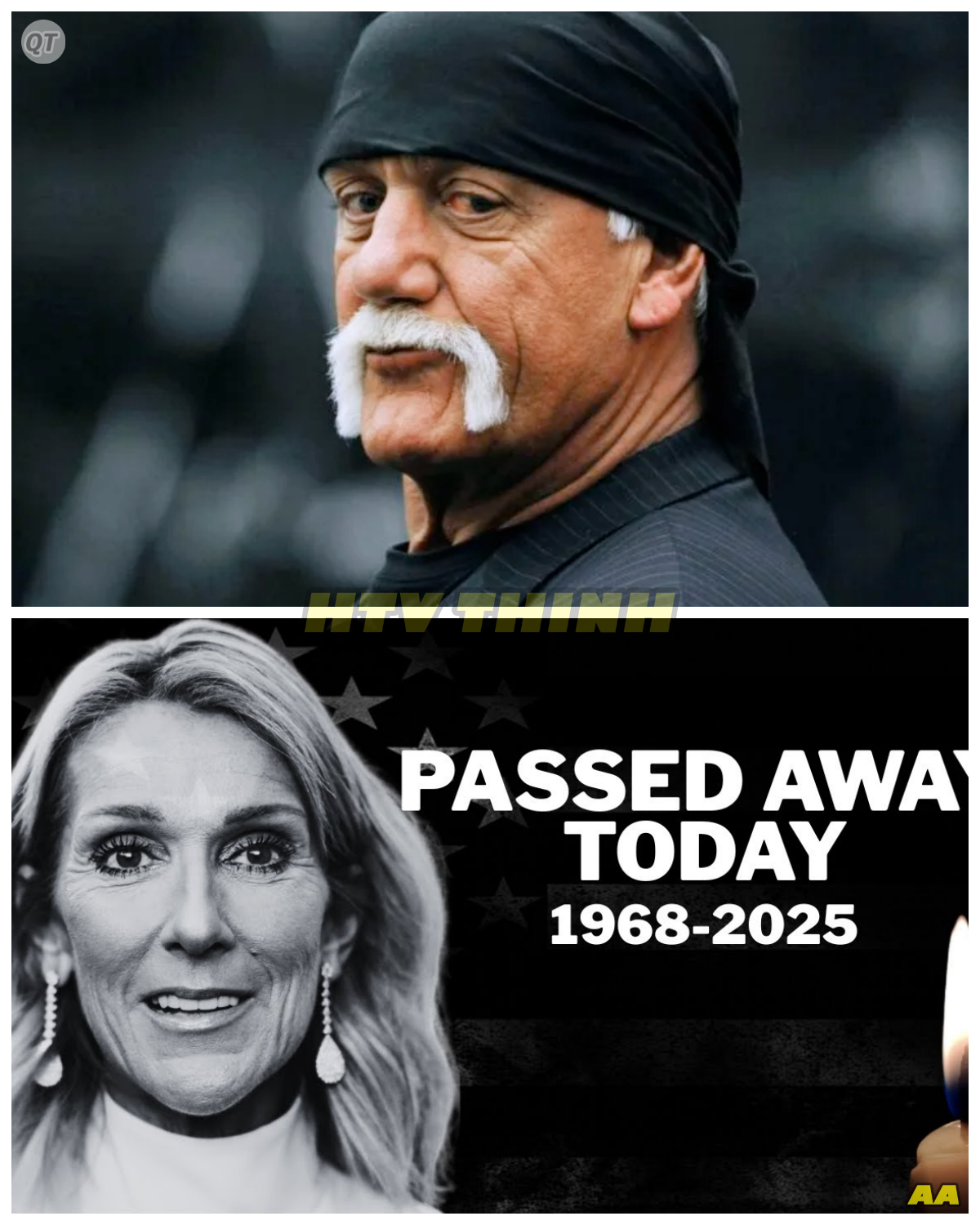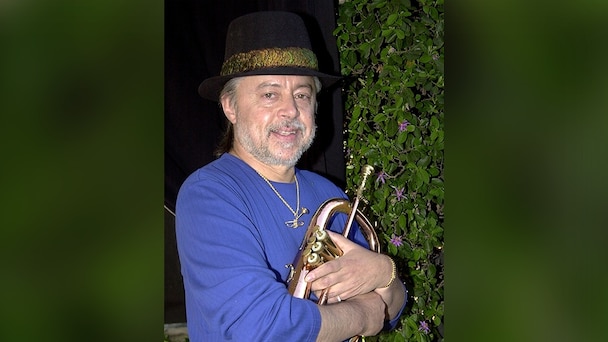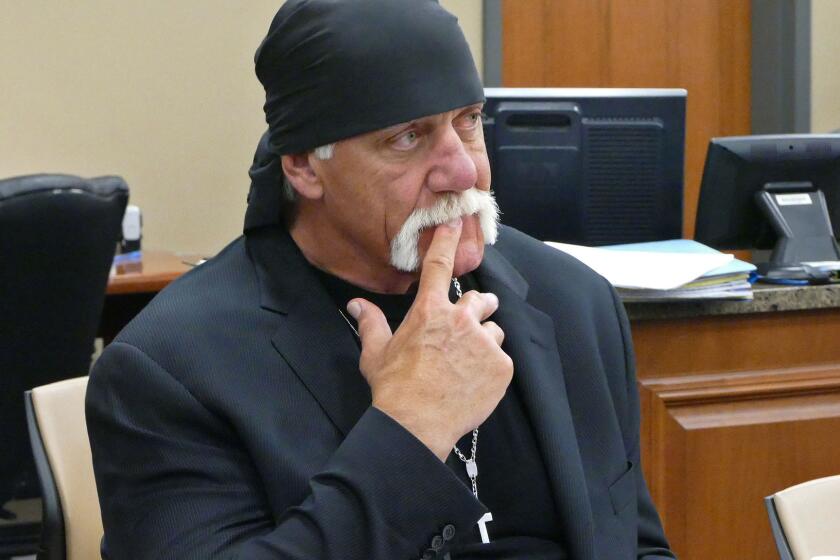😱🔥From the Ring to the Recording Booth: Four Icons Collide in One Deadly Week That Shook America’s Heart Wrestling’s Hulk Hogan collapsed from cardiac arrest, jazz maestro Chuck Mangione breathed his last at 84, beloved TV cook Anne Burrell was found dead at just 55 in a suspected suicide, and swamp‑pop pioneer Tommy McLain passed away suddenly—all within days, unraveling a tapestry of grief across pop culture.👇
The Day the Spotlight Went Dark—What America Lost When Four Legends Fell

CHUCK MANGIONE’s horn was silent for the first time in half a century.
The news came like a cold wind through empty streets: the man whose lips had conjured sunlight, whose song “Feels So Good” could melt the frost off a January morning, was gone.
No more would his flugelhorn rise above the static of American life, transforming rush hour into a private jazz club, a place where hope could still be improvised.
His music had always been a lifeline—a golden thread in the fabric of a country forever on the verge of unraveling.
Now, that thread snapped.
And the silence that followed was deafening.

In the same breath, the world learned that HULK HOGAN—the immortal, the indestructible, the man who had body-slammed the impossible—had fallen.
Fans remembered the roar of the crowd, the way he’d tear his shirt in a single, furious gesture, as if to say, “I am more than flesh and bone—I am legend.
”
But legends, it turned out, could bleed.
The ring was empty now, the ropes sagging like the shoulders of a nation that had lost its strongest son.
Children who once flexed their arms and shouted “Whatcha gonna do, brother?” now whispered the question to themselves, uncertain if there was anyone left to answer.
RENE KIRBY slipped away quietly, as if he’d always known he was just passing through.
He was the wild card, the misfit, the one who made you laugh when you weren’t sure if you should.
In comedies, he was the punchline you never saw coming; off-screen, he was the friend who showed up at your darkest hour, a grin and a joke in his pocket.
His roles were small, but his presence was seismic.
He made weirdness a kind of superpower, turning every oddity into a badge of honor.
Now, the world felt a little more ordinary, a little less brave.

And then, as if the universe wanted to prove that even the most beloved could be taken, MALCOLM-JAMAL WARNER was gone.
Theo Huxtable—the heartbeat of a television dynasty, the kid who grew up in the living rooms of millions—had left the set for good.
He’d been more than a character; he’d been a mirror, reflecting hopes, mistakes, and the awkward beauty of growing up black in America.
But Malcolm-Jamal was never just Theo.
He was a musician, a director, a voice that refused to be silenced.
Now, that voice was gone, and the echo of his laughter lingered in empty studios and silent streets.
The news hit America like a car crash in slow motion.
Each name was a headline, each headline a wound.
Social media lit up with disbelief—tributes, memories, shaky videos of concerts and wrestling matches, clips from sitcoms and cult movies.
It was as if the country had collectively forgotten how to breathe.
How could so much light vanish in a single day?
The truth, of course, was that these four had always been more than their fame.
They were the scaffolding of a culture built on dreams and delusions, on the hope that if you played loud enough, fought hard enough, laughed weirdly enough, you could cheat death.
For years, they had stood between America and the abyss, holding back the darkness with nothing but talent and willpower.
Now, the abyss was staring back.

Chuck Mangione had once said that music was a way to speak without words.
But in the hours after his death, fans found themselves at a loss.
No melody could fill the void, no chord could resolve the ache.
Jazz stations played “Feels So Good” on a loop, but the song sounded different now—less like a promise, more like a eulogy.
People wept in cars, in kitchens, in the lonely glow of their phones.
It was as if a piece of the American soul had been stolen in the night.

Hulk Hogan had been the last of the real superheroes.
He made you believe in the impossible.
Now, his mask lay on the mat, and the world saw what it had always feared: that even giants fall.
Wrestling fans gathered in bars and living rooms, replaying old matches, searching for the moment when they still believed.
But the ring was empty, and no one was coming out of the tunnel.
Rene Kirby’s passing didn’t make the front page, but it hit hardest of all.
He was the reminder that you didn’t have to be the star to matter.
Friends told stories of his kindness, his resilience, the way he could turn a disaster into a punchline.
He was the patron saint of the overlooked, and now, the misfits of the world mourned one of their own.
The world felt colder, less forgiving.
Malcolm-Jamal Warner’s death was the twist no one saw coming.
He was supposed to grow old with us, to keep showing up in guest spots and jazz clubs, to keep pushing the culture forward.
Instead, the credits rolled too soon.
His absence was a wound that refused to heal.
For a generation that had grown up with him, it was a kind of orphaning.
A reminder that time is a thief, and no one gets a rerun.
Then came the shock—the twist that no one expected.
As the tributes poured in, a single thread began to weave through the stories.
Each of these legends, in their final days, had reached out to someone forgotten.
Chuck had played a private concert in a hospice, his horn soft as a prayer.
Hulk Hogan had visited a children’s hospital, holding the hand of a boy who would never walk.
Rene Kirby had sent gifts to fans he’d never met, notes filled with jokes and hope.
Malcolm-Jamal Warner had funded scholarships for young artists, insisting his name be left off the check.
In their last acts, they had given away the only thing they had left—themselves.
And in doing so, they had left behind a legacy far greater than fame: the quiet, stubborn insistence that everyone matters.
America woke up the next morning changed.
The loss was real, the pain raw, but something new had taken root.
People called old friends.
They forgave debts.
They listened to jazz on the way to work, flexed their arms in the mirror, told a joke when the world felt hopeless.
They watched reruns and remembered what it meant to be seen.
The spotlight was gone, but in the darkness, a thousand small lights flickered to life.
The legends had fallen, but their stories had become a map—a way through grief, a way back to each other.
And so, the day the spotlight went dark, America learned how to shine on its own.
Not with fame, not with noise, but with the simple, stubborn grace of being alive.
And in that unexpected, unscripted moment, the country realized:
The show goes on.
Because the greatest legends never really leave.
They just pass the torch, one trembling hand at a time.
